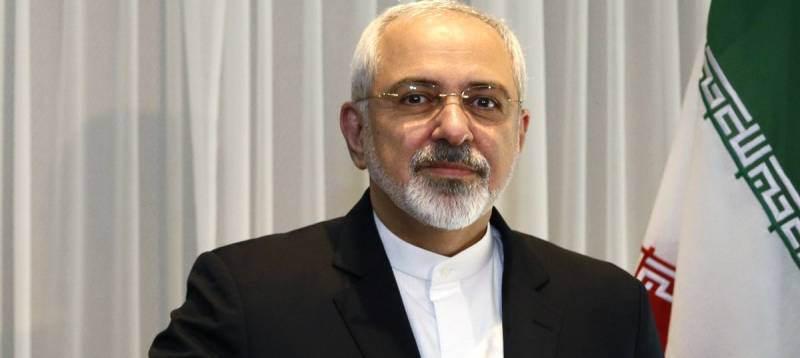ISLAMABAD - Pakistan is ready to lend an ear to Iran amid tensions with the United States, officials here said on Wednesday.
Iranian Foreign Minister Javad Zarif will reach Pakistan on a two-day visit today to discuss the latest situation and row with the US.
Senior officials at the foreign ministry told The Nation that Pakistan was ready to listen to Iran and wanted good ties with Tehran and peace between Tehran and Washington.
“The visit (of the Iranian FM) is a good chance to discuss the situation. We are ready to discuss the issue with then and help where we can,” said one official.
Another official said Pakistan was using diplomatic channels to cool down both the countries for the sake of the regional peace.
Foreign Minister Shah Mehmood Qureshi will host iftar-dinner in honour of his Iranian counterpart.
Zarif is also expected to meet Prime Minister Imran Khan and Chief of Army Staff Qamar Javed Bajwa.
The timing of the Iranian official’s visit is highly critical as President Hassan Rouhani has rejected talks with the US over the recent escalation that poses a threat of a war between the two rival countries.
Pakistan has lately sent a reply to Iran’s February 28 legal notice over delay in completion of Pakistan Iran Gas Pipeline project.
Islamabad told Tehran in writing that there were obstacles in execution of the Iran-Pakistan gas pipeline project as Iran is under US sanctions regime.
President Donald Trump withdrew from a 2015 nuclear deal between Iran and global powers a year ago, under which Tehran curbed its uranium enrichment capacity, and achieved relief in sanctions in return.
The US has resorted its sanctions on Iran last year and extended them this month, ordering all countries to halt imports of Iranian oil or face sanctions of their own. Iran has repeatedly rejected any further negotiations as long as the United States remains outside the nuclear pact.
Pakistan has already conveyed to the US that it was against any attack on Iran. Islamabad has urged restraint.
Earlier, the US government approved the deployment of a Patriot missile defence battery and another warship to the Middle East amid increasing tensions between the US and Iran.
The USS Arlington, which transports marines, amphibious vehicles, and rotary aircraft, as well as the Patriot missiles, will join the USS Abraham Lincoln carrier strike group, which already passed through Egypt’s Suez Canal on May 9, and is currently sailing in the Red Sea.
The US says the deployments of military hardware to the region comes in response to “heightened Iranian readiness to conduct offensive operations.”
The Patriot missile system is a defence mechanism against aircraft, drones, cruise missiles and ballistic missiles, and is currently deployed in Bahrain, Jordan, Kuwait, Qatar and the United Arab Emirates.
“The Acting Secretary of Defense has approved the movement of USS Arlington (LPD-24) and a Patriot battery to US Central Command as part of the command’s original request for forces from earlier this week,” a Pentagon statement said.
This month, a US air force bomber task force, including B-52 bombers, also arrived at the US airbase Al Udeid in Qatar.
In a statement, US Central Command said: “The Department of Defense continues to closely monitor the activities of the Iranian regime, their military and proxies. Due to operational security, we will not discuss timelines or location of forces. The United States does not seek conflict with Iran, but we are postured and ready to defend US forces and interests in the region.”
In an advisory posted on May 9, the US Maritime Administration said that since early May there had been an increased possibility of Iran or its regional proxies taking action against US and partner interests.
Tensions between Iran and the US have escalated sharply in recent weeks. The US unilaterally backed out of a 2015 nuclear pact in May 2018, effectively giving countries worldwide a year to stop buying Iranian oil or face US sanctions, which Washington says are aimed at completely choking off Iranian crude exports.
Washington last month blacklisted Iran’s Revolutionary Guard as a terrorist group. US officials say they have detected indications that Iran could be preparing a military response.






